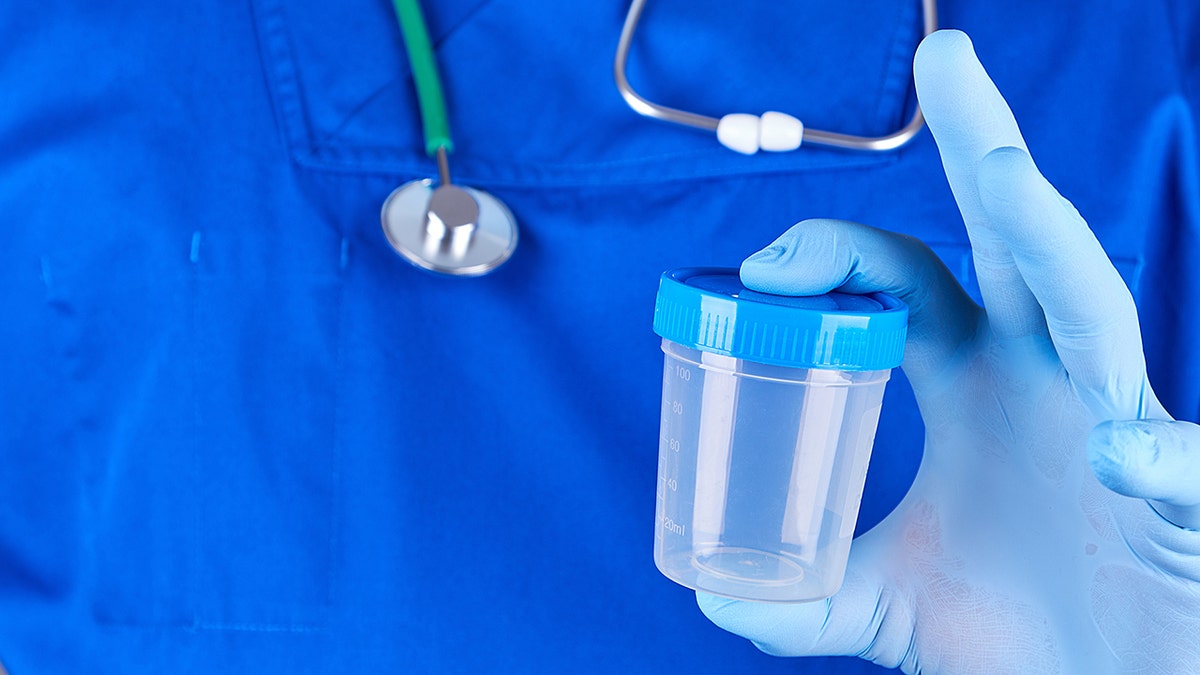A new study has exposed the sexual health habits of some Americans.
The research, conducted by DatingNews.com, analyzed data from the U.S. Census Bureau to determine how and where Americans have been contracting and spreading STIs (sexually transmitted infections), also known as STDs (sexually transmitted diseases).
Among the findings was the fact that 55% of people with an STI contracted it from a cheating partner.
TESTOSTERONE THERAPY COULD HELP BOOST WOMEN’S SEX DRIVE AS THEY AGE, BUT RISKS EXIST, EXPERTS SAY
Thirteen percent of the nearly 1,000 respondents said their partner has lied to them about their STI status, while 45% did not discuss testing with their partner before becoming sexually active.
Nearly one in five (18%) of respondents said they have been diagnosed with an STI, with the most common diagnosis, chlamydia, making up 36% of the cases.
The survey participants ranged in age from 18 to 79, DatingNews.com spokesperson Emily Fanous told Fox News Digital.
Given that 81% of Americans over 18 are sexually active, Fanous emphasized the importance of knowing your risk and how getting testing can aid in prevention.
FIRST AT-HOME SYPHILIS ANTIBODY TEST GETS FDA AUTHORIZATION AS STD CASES SPIKE IN US
One in three Americans in the study said they have never been tested for an STI.
The largest number of untested individuals were baby boomers (51%), followed by millennials (33%) and Gen Z and Gen X (both 29%).
The main reasons respondents refrain from testing are embarrassment (25%), lack of time (22%) and cost (19%).

Dr. Gabe Gaviola, MD, senior medical director at Everlywell in New York — an at-home STD testing and treatment platform — noted that there are more than 20 million new cases of STIs reported in the U.S. each year.
“The real surprise from these findings is the lack of STI testing that could prevent new cases,” Gaviola, who was not involved in the study, told Fox News Digital during an on-camera interview.
“Many STIs don’t present any symptoms, which means you shouldn’t wait for symptoms to get tested.”
“As a doctor and public health advocate, I wish more people knew that there are affordable at-home STI lab testing options that provide quick, reliable results with the privacy and convenience of collection at home.”

The study also found that only 34% of people get annual STI testing, while fewer than 25% get tested before entering a new relationship.
“Those numbers aren’t high enough,” Gaviola said. “Many STIs don’t present any symptoms, which means you shouldn’t wait for symptoms to get tested.”
STDs by state
The research also revealed which U.S. states have the most STI and STD cases.
Mississippi has the highest rate, at 1,187 diagnoses per 100,000 people, followed by Louisiana at 1,145, Alaska at 1,066, South Dakota at 993 and Georgia at 975.
Fanous encourages those in states with high rates to consider being tested if they are sexually active.
For more Health articles, visit www.foxnews/health
“These findings show that too many people are not prioritizing their sexual health,” Gaviola said.
“Whether it’s because of stigma, access or education, millions of Americans who are at high risk of getting or transmitting an STI are not getting tested.”
“We need to advance the conversation around sexual health and increase education about the importance of STI testing.”

Everlywell is teaming up with the American Sexual Health Association for the first-ever National Get Tested Day on Sept. 30.
“Testing is the first step in empowering people with important information about their sexual health.”
“Our goal is to educate and break down barriers to accessing this essential health care,” Gaviola said.
“Testing is the first step in empowering people with important information about their sexual health.”

Gaviola added that even people in long-term, monogamous relationships should stay up to date on STI testing.
CLICK HERE TO SIGN UP FOR OUR HEALTH NEWSLETTER
“Many STIs don’t present any symptoms, but if left undetected and untreated, they can lead to serious long-term health issues, such as infertility,” he cautioned.
The expert encouraged Americans to have open conversations with their partners before entering a sexual relationship and to “keep checking in.”
“This helps establish trust that they are taking their sexual health as seriously as you are by getting tested regularly,” he said.
Read the full article here











